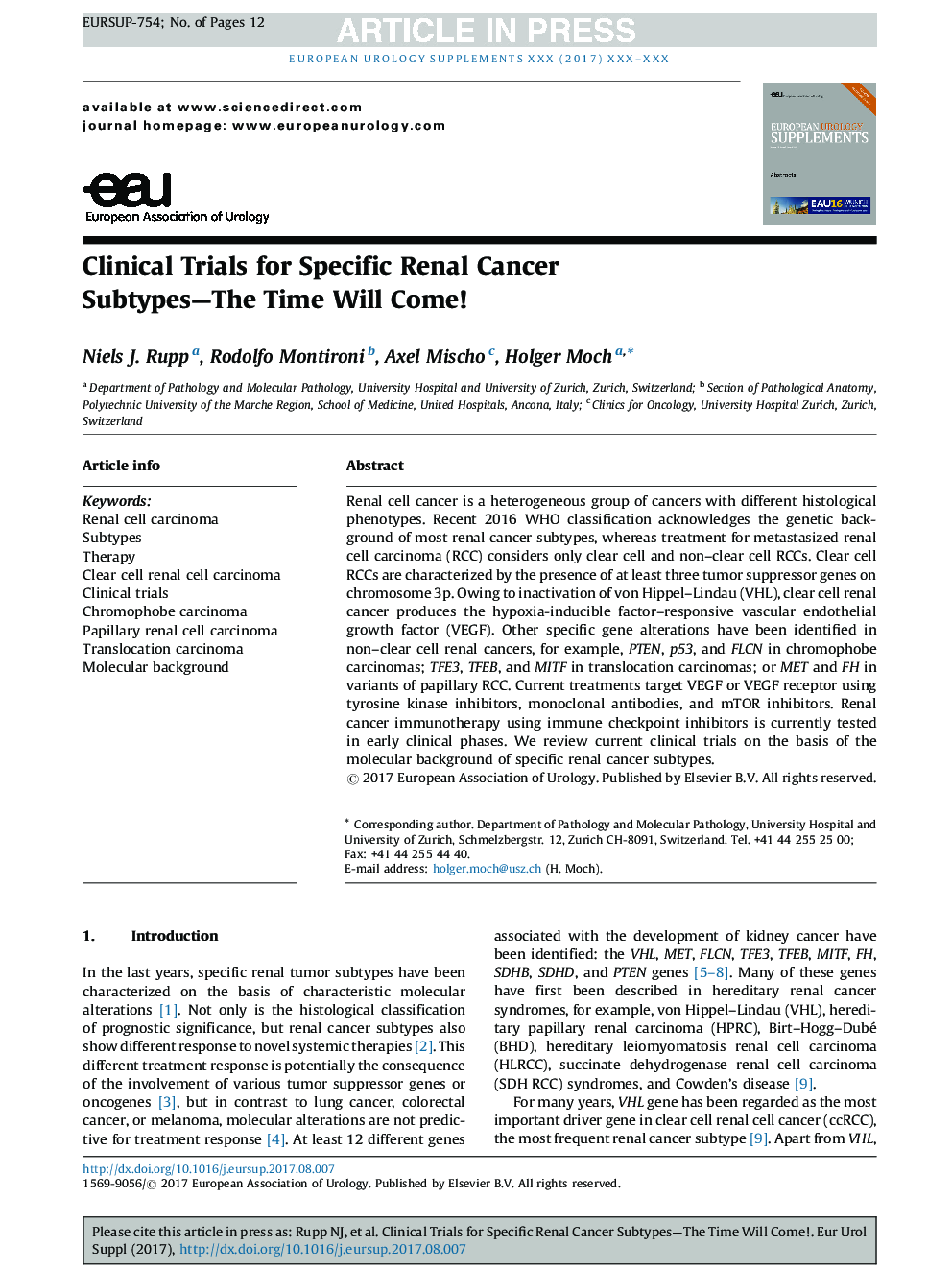| Article ID | Journal | Published Year | Pages | File Type |
|---|---|---|---|---|
| 8779161 | European Urology Supplements | 2017 | 12 Pages |
Abstract
Renal cell cancer is a heterogeneous group of cancers with different histological phenotypes. Recent 2016 WHO classification acknowledges the genetic background of most renal cancer subtypes, whereas treatment for metastasized renal cell carcinoma (RCC) considers only clear cell and non-clear cell RCCs. Clear cell RCCs are characterized by the presence of at least three tumor suppressor genes on chromosome 3p. Owing to inactivation of von Hippel-Lindau (VHL), clear cell renal cancer produces the hypoxia-inducible factor-responsive vascular endothelial growth factor (VEGF). Other specific gene alterations have been identified in non-clear cell renal cancers, for example, PTEN, p53, and FLCN in chromophobe carcinomas; TFE3, TFEB, and MITF in translocation carcinomas; or MET and FH in variants of papillary RCC. Current treatments target VEGF or VEGF receptor using tyrosine kinase inhibitors, monoclonal antibodies, and mTOR inhibitors. Renal cancer immunotherapy using immune checkpoint inhibitors is currently tested in early clinical phases. We review current clinical trials on the basis of the molecular background of specific renal cancer subtypes.
Keywords
Related Topics
Health Sciences
Medicine and Dentistry
Obstetrics, Gynecology and Women's Health
Authors
Niels J. Rupp, Rodolfo Montironi, Axel Mischo, Holger Moch,
